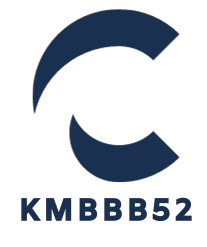Exploring the realm of buying or selling a business can be a challenging experience. Here is where business brokers play a crucial role, functioning as go-betweens who help in execute such deals. These brokers have specialized insight and capabilities which can substantially streamline the transaction, offering essential advice to both buyers & sellers.
Through their expertise, they enable negotiate contracts, prepare businesses for acquisition, and link stakeholders, positioning them vital players in the market.
Various kinds of business intermediaries, each serving different different needs and fields. Understanding these distinctions can empower entrepreneurs to pick the right broker for their specific circumstances. Whether one is looking to sell a minor local enterprise or obtain a larger organization, the right broker can offer customized assistance, ensuring the transaction fits the goals and aspirations of everyone concerned. In this article, we will discuss the different types of business brokers and the ways that they can influence the buying and selling experience.
Categories of Brokers for Businesses
Brokers can be categorized into multiple types based on their expertise and the unique solutions they offer to clients. One typical type is the full-service business broker, who offers a complete range of assistance from assessing value and marketing to negotiation and closing the transaction. These brokers typically handle small to medium-sized businesses and appeal to sellers looking for a hands-on approach throughout the entire transaction process.
A different type is the niche business broker, who specializes in specific industries or niches. These brokers have extensive knowledge and expertise in particular sectors, such as hospitality, production, or tech. By concentrating on a specific market, they can provide tailored advice and reach out to buyers and sellers who are particularly interested in those types of businesses. This focus often results in greater advertising plans and better comprehension of the unique obstacles faced in those industries.
Lastly, there are digital business brokers, which have gained trending in the last years. These brokers function primarily through online platforms and facilitate the buying and trade process digitally. They typically cater to little businesses or new ventures and provide efficient services that allow for quick transactions. While they may not offer the same level of individual interaction as traditional brokers, they can be a cost-effective option for owners looking to sell without the extensive involvement of a full-service broker.
Roles and Responsibilities
Business intermediaries function as go-betweens connecting purchasers and sellers of businesses, streamlining the complete deal process. They are charged with appraising companies correctly to make certain both parties have a clear grasp of the sale price. This entails conducting comprehensive evaluations and market research to determine the cost and prospects of a company. Brokers also assist sellers in getting ready their business for transaction, which includes organizing financial documents and boosting the overall attractiveness to interested parties.
Besides valuation and readiness, brokers assume a crucial role in promoting the company. They create targeted promotion plans to reach the target demographic, utilizing diverse methods to capture potential purchasers. Business brokers also address questions and correspondence, ensuring that confidentiality is preserved throughout the process. This strategic method also aids in securing suitable buyers but also enhances the deal-making process, allowing brokers to speak effectively for their clients.
Moreover, business brokers are charged with guiding customers through the intricacies of the deal process. They aid navigate regulatory frameworks, assist in formulating sales contracts, and coordinate due diligence efforts. By acting as a liaison for all stakeholders, brokers help to reduce issues and tackle any issues that may occur. Their experience guarantees that transfers are finalized smoothly and efficiently, ultimately resulting in positive results for both buyers and sellers.
Determining the Appropriate Business Broker
Choosing the appropriate broker is crucial for facilitating a successful transaction. Start by identifying the particular type of broker that aligns with your business needs, whether you are purchasing or divesting. Some brokers concentrate in certain industries, while others may focus on specific business sizes or regions. Knowing your requirements will assist refine your choices and lead you to a business broker with appropriate experience and expertise.
Afterward, evaluate the broker’s qualifications and background. A good broker should have a proper license, be a member of professional organizations, and have a record of profitable transactions. Search for reviews and feedback from past clients to gauge their reputation. It’s also helpful to have a conversation with potential business brokers to determine their communication style and commitment to your goals. A strong connection can render the entire procedure smoother and effective.
Lastly, evaluate the broker’s fee structure and how it corresponds with your budget. Business brokers typically impose a fee based on the selling price of the business. Be sure to inquire about any initial fees or other costs that may occur during the transaction. business broker boynton beach Balancing the costs against the possible benefits of a broker experience can assist you arrive at an informed decision that finally adds value to your business transaction.
